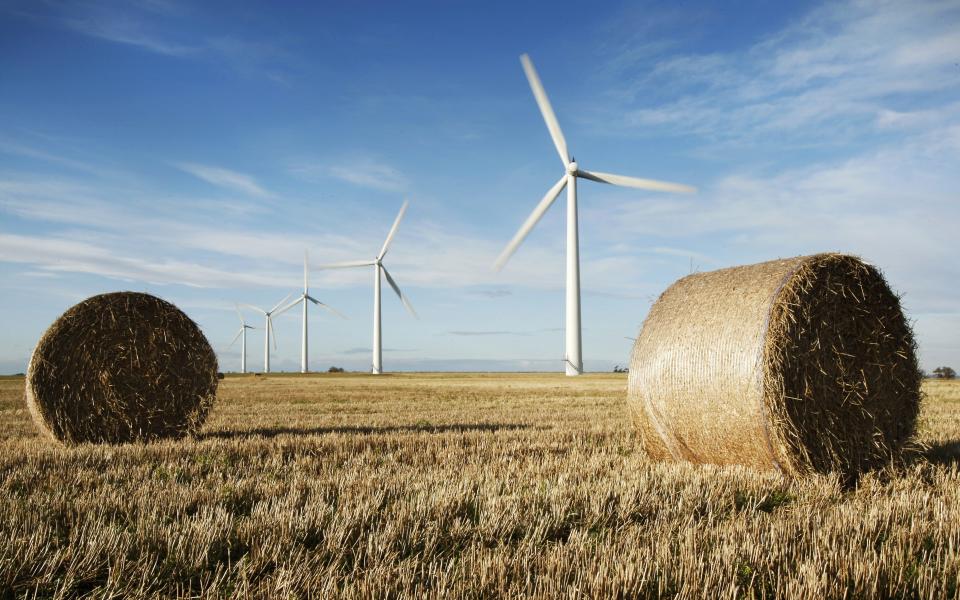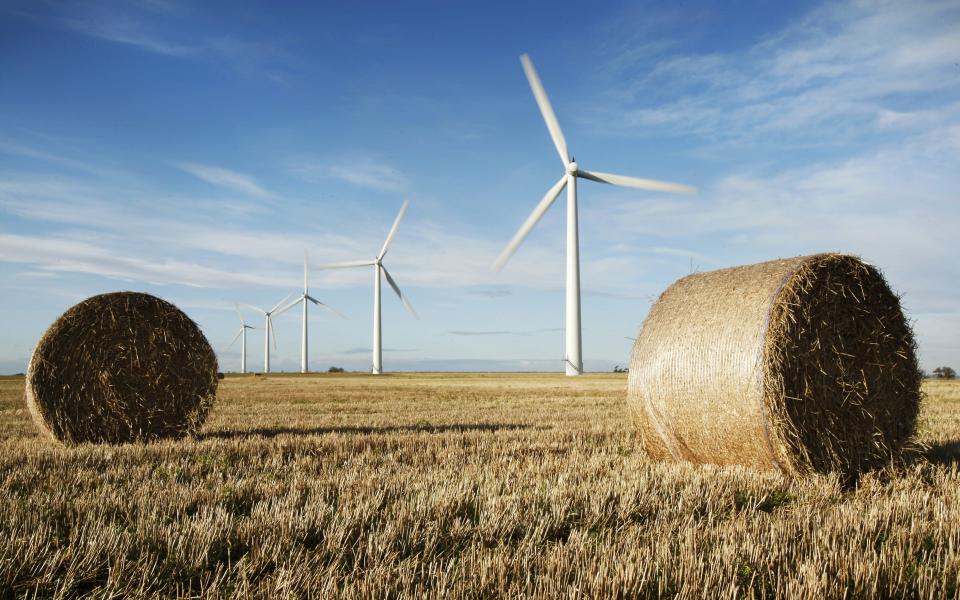A Brexit that benefits agriculture is a Brexit that benefits the nation – Ministers, take note
As Samuel Johnson said: “Agriculture not only gives riches to a nation but the only riches she can call her own”. He may have written this in the eighteenth century but, as the UK prepares to leave the European Union, his sentiment has never been more relevant. Agriculture is facing its greatest challenge and its most exciting opportunity for generations.
We are currently faced with an unprecedented chance to reshape the agricultural sector to deliver more for the UK, building prosperity and improving our quality of life.
How to maximise the benefits and minimise the disruption of Brexit is hugely important to the country’s future and will dominate discussions at the NFU conference this week.
The NFU has commissioned a comprehensive report in order to demonstrate the true value of the agriculture sector and why the Government should prioritise food and farming in its upcoming negotiations.
The overall contribution of agriculture to the UK, based on the latest available figures, is £46.5 billion
For the first time, this report calculates the full contribution agriculture makes to the economy. It also assesses the social and cultural benefits that farming provides for the nation, including the role farmers play in helping to manage the countryside.
The report shows that the overall contribution of agriculture to the UK, based on the latest available figures, is £46.5 billion. This is spread across every part of the country, with agriculture playing a central role in truly rebalancing the economy.
The sector employs around 475,000 people and produces the raw ingredients for the country’s largest manufacturing sector – food and drink. This sector is worth £108 billion and generates around £18 billion worth of export earnings annually.
To give an idea of the significant return on investment this represents, for every £1 the nation invests in farming, a staggering £7.40 is generated. The research demonstrates that farming is a vitally important part of our overall economy.
In addition to its core role of feeding the nation safe, high-quality produce, farming also plays an important role in managing over 70 per cent of the UK’s land area, providing habitats for wildlife and countryside for us all to enjoy. This, too, has economic benefits: rural tourism is worth at least £2 billion a year.
Moreover, in recent years, farmers have managed to increase food production while lowering greenhouse gas emissions and reducing the use of chemicals and water.
Farmers produce renewable energy, including wind, biomass and solar power, with around 10 per cent of the nation’s electricity now generated on agricultural land. This is a huge success story, and one I witnessed first hand in my own farming community in Pembrokeshire.
In order for agriculture to continue to contribute so magnificently to our national coffers and the protection of our rural heritage, we need the Government to put farming at the heart of its Brexit negotiations.
Leaving the EU will allow us to take control of the policy that currently governs our farming industry. Gone will be the current Common Agricultural Policy structures; new measures bespoke to the UK’s food and farming needs will be in its place.
This is a golden moment for British politicians to show they understand the true value of the agricultural sector to this country.
Food and farming must be a central part of our trade talks from day one. Our first opportunity, and our number one priority, must be focused on getting the best possible access to European markets.
Trade must be at the heart of the Government’s negotiations. 70 per cent of the UK's exported food goes to the European Union; farmers need the freest access to its markets as possible. Liam Fox, Secretary of State for International Trade, is seeking new bilateral free trade arrangements. These need careful thought. New settlements must be entered into in full knowledge of the potential impact on UK producers.
85% of the population said they wanted more British food in supermarkets in 2015
The UK has world-leading animal welfare standards. British produce is high-quality but affordable – we must not jeopardise this. Fair trade with the rest of the world is what UK farmers seek and what the public needs. This means we need the same conditions to apply to imports as society expects of the UK’s farmers. We know that this is what the public wants: according to YouGov, 85 per cent of the population said they wanted more British food in supermarkets in 2015, up from 79 per cent the previous year.
Access to labour is also important. In recent years, the EU has provided an important source of seasonal and permeant labour for UK agriculture. The future health of the UK agri-food sector relies on its ability to source a competent and reliable workforce.
Of course, we farmers have responsibilities too. We will work closely with the Government to continue to promote the qualities and values of British food production though assurance schemes, such as Red Tractor, all the while working to ensure we protect the woodlands, hedgerows, ponds and meadows which are such a crucial part of our national identity and rural heritage.
By seizing the opportunities that lie ahead, I believe we can make a success of Brexit for farming – the sector most impacted by the UK’s decision to leave the EU – and importantly make a success of Brexit for the nation. In Dr Johnson’s wise words, we will all reap a fine harvest for years to come.
Meurig Raymond is the President of the National Farmers' Union

 Yahoo News
Yahoo News 


